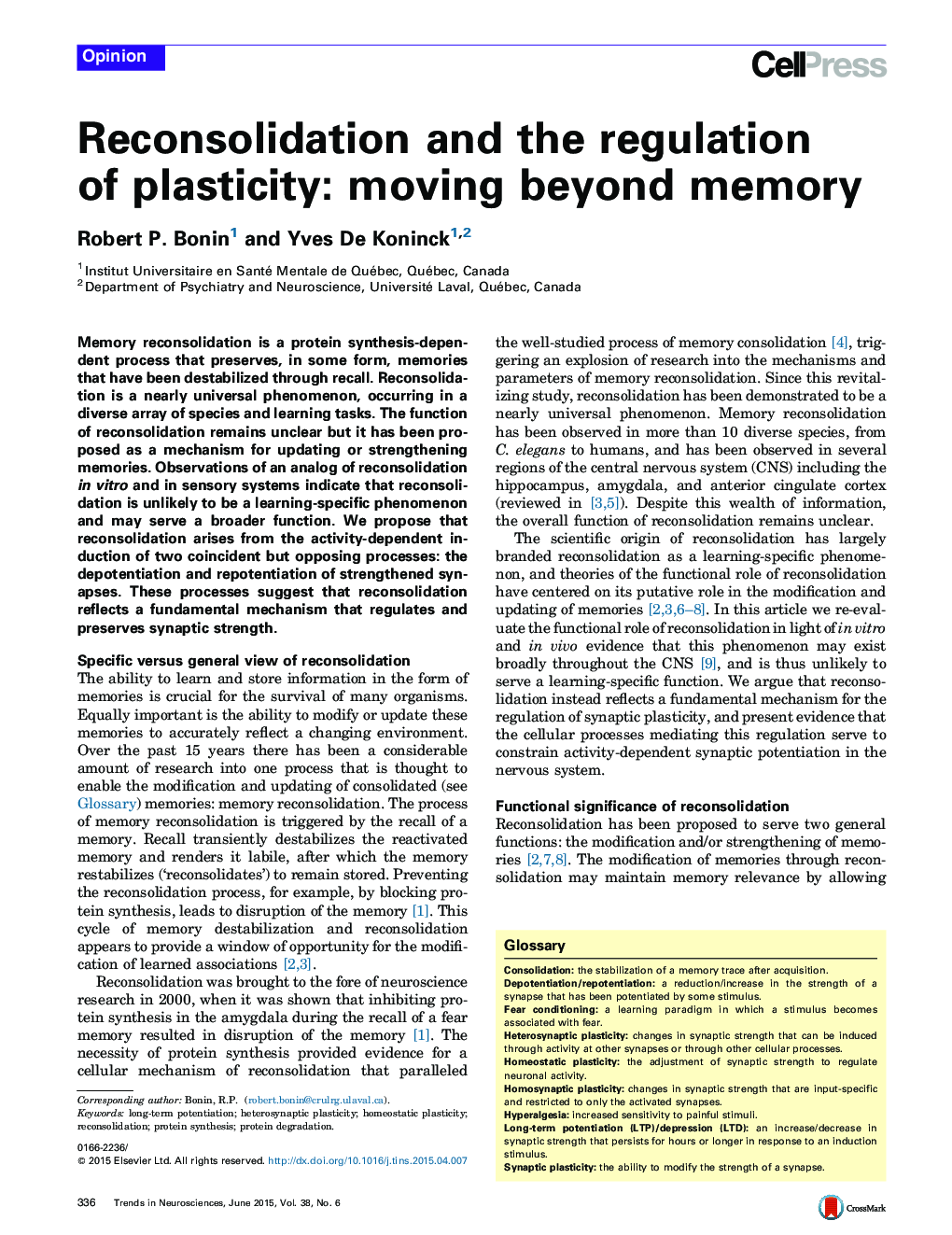| Article ID | Journal | Published Year | Pages | File Type |
|---|---|---|---|---|
| 4354117 | Trends in Neurosciences | 2015 | 9 Pages |
•Reconsolidation exists broadly throughout the nervous system.•Reactivation of memory traces induces synaptic depotentiation and repotentiation.•We propose that depotentiation and repotentiation preserve synaptic strength.•Reconsolidation may reflect a general regulatory mechanism of synaptic plasticity.
Memory reconsolidation is a protein synthesis-dependent process that preserves, in some form, memories that have been destabilized through recall. Reconsolidation is a nearly universal phenomenon, occurring in a diverse array of species and learning tasks. The function of reconsolidation remains unclear but it has been proposed as a mechanism for updating or strengthening memories. Observations of an analog of reconsolidation in vitro and in sensory systems indicate that reconsolidation is unlikely to be a learning-specific phenomenon and may serve a broader function. We propose that reconsolidation arises from the activity-dependent induction of two coincident but opposing processes: the depotentiation and repotentiation of strengthened synapses. These processes suggest that reconsolidation reflects a fundamental mechanism that regulates and preserves synaptic strength.
